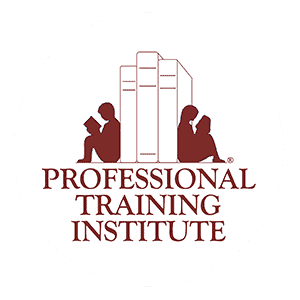Reading success begins long before a child opens their first book. A key predictor of literacy achievement is phonological awareness—the ability to hear, recognize, and manipulate the sounds that make up spoken words. Without this foundation, children may face significant challenges in learning to read and spell. By fostering phonological awareness at home and in early education, adults can give children the tools they need to thrive as confident readers.
Commonwealth Learning Center (CLC) specializes in supporting children with learning differences and helping families nurture early literacy skills. Below, we’ll explore practical strategies to use at home, why these skills matter, and when to consider professional support.

Why Phonological Awareness Matters
Phonological awareness is not about memorizing letters—it’s about listening to and working with sounds. Children learn that words can be broken into syllables, syllables into sounds, and sounds can be rearranged to form words.
Research consistently shows that children with strong phonological awareness skills develop reading and spelling proficiency more easily. Those without this foundation often experience difficulties that persist throughout school.
Starting early—ideally in preschool, pre-kindergarten, or kindergarten—and reinforcing these skills at home in fun and interactive ways provides children with the best chance to succeed.
Key Skills That Build Reading Readiness
Several important skills fall under phonological awareness. Each one contributes to a child’s ability to decode words and understand how language works.
Rhyming
Recognizing and creating rhymes is often the first step toward phonological awareness. For example:
- “Cat” and “hat” rhyme, while “cat” and “cot” do not.
- Encourage children to make up their own rhymes—real or nonsense words both count.
This activity can happen anywhere: in the car, while cooking, or before bedtime.
Segmenting Words
Segmenting is breaking language into smaller parts:
- Sentence segmentation: Clap for each word in a sentence. (“Summer is my favorite season” = 5 claps)
- Syllable segmentation: Clap for each syllable in a word. (“Scramble” = 2 claps)
- Sound segmentation: Identify each sound in a word. (“Stash” = /s/ /t/ /a/ /sh/)
- Note: / / around a letter means ‘the sound of,’ so in this example you would say “s, t, a, sh”
This prepares children for reading by teaching them how to isolate and process sounds.
Deletion of Sounds or Syllables
Deleting requires children to repeat a word without one of its parts. For example:
- Say “kangaroo” without “roo” = “kanga.”
- Say “meat” without the /m/ sound = “eat.”
This activity strengthens flexibility in processing language.
Sound Substitution
Once children can delete sounds, they can begin substituting them. For instance:
- Start with “sun.”
- Change /s/ to /f/ → “fun.”
- Change /f/ to /r/ → “run.”
Blocks, tiles, or simple oral prompts can be used to demonstrate changes.
Sound Isolation
Children should be able to identify the first, middle, and last sounds in words.
- In “happy,” the first sound is /h/.
- In “moon,” the middle sound is /oo/.
This helps distinguish between letter names and the sounds they represent.
Blending Sounds
Blending is the reverse of segmentation—combining sounds to form words.
- At the syllable level: “Flow-er” → “flower.”
- At the sound level: /g-a-p/ → “gap.”
Blending teaches children to put sounds together smoothly, an essential step in decoding written words.
Did You Know? Local Spotlight on Massachusetts Early Literacy Support
Massachusetts is a leader in promoting early literacy development. The state’s Department of Elementary and Secondary Education emphasizes early phonological awareness assessments in preschool and kindergarten. Schools often incorporate evidence-based programs to catch challenges early.
For nearly 40 years, families in the Greater Boston area have had access to Commonwealth Learning Center’s one-on-one targeted tutoring where children receive individualized academic support designed to strengthen phonological awareness and literacy skills, and now these services are available virtually nationwide.
Practical Tips to Use at Home

- Keep sessions short—just 5–10 minutes per day.
- Focus on one or two skills at a time (such as rhyming and blending).
- Turn everyday moments into practice opportunities (clap syllables while cooking, rhyme during car rides).
- Use games, songs, and storytelling to make practice engaging.
If you notice consistent struggles—especially with rhyming or sound awareness—consider requesting a Comprehensive Test of Phonological Processing-2 (CTOPP-2) through the child’s school.
When to Seek Professional Support
While many children develop these skills naturally, some need direct, structured instruction. Warning signs may include:
- Difficulty recognizing rhymes.
- Trouble identifying or blending sounds.
- Persistent confusion between letters and sounds.
Early intervention prevents reading struggles from compounding. At the Commonwealth Learning Center, our specialists use evidence-based programs to help children strengthen these skills in a supportive, one-on-one environment.
Common Questions Around Phonological Awareness
What is the difference between phonological awareness and phonics?
Phonological awareness is about hearing and manipulating sounds in spoken words. Phonics connects those sounds to written letters. Children need phonological awareness first to succeed with phonics.
At what age should phonological awareness begin?
Skills can be nurtured as early as age three, with structured activities starting in preschool. By kindergarten, children should be practicing rhyming, segmentation, and blending.
How long should parents spend on practice each day?
Short, daily practice works best. Aim for 5–10 minutes focusing on one or two skills.
Can phonological awareness problems be corrected?
Yes. With early, consistent intervention, most children can build strong skills and become successful readers.
Does a child need tutoring if they struggle with phonological awareness?
If difficulties persist despite practice at home, professional tutoring may be the best next step. CLC provides individualized assessments and instruction tailored to each child’s learning needs.
Related Terms
- Early literacy development
- Phonemic awareness
- Reading readiness
- Sound-symbol recognition
- Language-based learning differences
Additional Resources
- Wikidata: Phonological Awareness
- International Literacy Association
- National Institute of Child Health and Human Development – Literacy
Ready to Help Your Child Become a Strong Reader?
Commonwealth Learning Center offers personalized, one-on-one tutoring to build the foundational skills children need for lifelong reading success. Contact us today to schedule an assessment and give your child the support they deserve.




